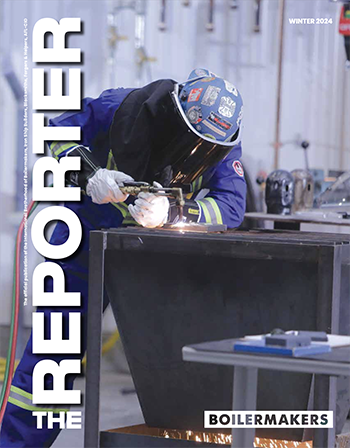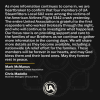Union-business coalition’s efforts pay off – law will temporarily ease pressures on defined-benefit pensions
JUST BEFORE CHRISTMAS, Congress passed and President Bush signed a bill that provides temporary relief to pension plans reeling from the 2008 stock market crash. The new law eases the benefit payment schedules set in place in 2006, giving pension plans greater options in determining the best way to recover from the enormous drop in asset value caused by the stock market crash. A coalition of nearly 300 large businesses and unions with defined-benefit pension plans, including the Brotherhood of Boilermakers, worked hard to ensure that Congress did not adjourn before passing the bill, which they believe is necessary to keep their pension plans viable.
Defined-benefit plans were hit twice in 2008 – first by a 2006 pension reform bill that redefined how defined-benefit plans finance benefit payments, and second by the decline of pension fund assets that occurred when stock prices plummeted 46 percent, effectively wiping out more than $6 trillion in wealth.[1] Without this pension relief bill, many plans would have had to make drastic contribution increases, reduce benefits, or even go bankrupt.
“Our pension plan is far from being out of the woods,” said Intl. Pres. Newton B. Jones, “but this bill gives the trustees some time to find a recovery plan that can work. Without it, they would have had to act almost immediately, before the full extent of the recession and stock market drop can be understood.”
This bill does not erase the funding obligations of pension plans, but does adjust some payment schedules set up by the 2006 law. Without those schedule adjustments, generally healthy plans hurt by the stock market decline would have had to make drastic pension plan contribution increases and benefit cutbacks as early as 2009. The new law allows plans to temporarily delay taking those actions until the economic picture is clearer.
International President Newton B. Jones praised the work of the Boilermakers Department of Government Affairs as well as grass-roots support from members in getting the legislation passed. “We should all thank Bridget [Martin, director of government affairs] and Abe [Breehey, director of legislative affairs] for their hard work to get this law passed,” he said. “Bridget worked especially hard to make sure Congress did not adjourn before passing the bill. When it passed, her union lobbying colleagues praised her for her perseverance in pushing Congress to pass a bill before they adjourned for the year.
“I also want to thank all those Boilermaker members who made phone calls and wrote letters to members of Congress in support of this bill,” he said. “Your effort helped make Congress aware of the urgency of getting this relief bill passed.”
In addition to providing relief to defined-benefit pension plans, the new law also suspends for 2009 a requirement that people 70 1/2 and older must withdraw a minimum amount from their retirement plans or IRAs. This provision lets them avoid selling their stocks when prices are at their lowest point in more than five years.
What the legislation does not do – and no legislation can do – is alter the fact that the stock market has experienced a crash greater than anything seen since the Great Depression. All investors – and all pension funds – have been hurt. The Boilermaker-Blacksmith pension plan, among the 22 largest multi-employer pension funds in the United States[2] and one with a relatively conservative investment portfolio, saw the value of its assets drop almost 27 percent in the market crash. That decline was not nearly as great as the overall decline in stock prices, nor as large as many pension funds experienced, but it will not be easy for the plan to make up such a monumental loss. Eventually, changes to the funding and benefit formula will need to be made, but this bill provides more time for pension plan trustees and money managers to come up with a strategy for rebuilding the fund that does not overly burden current retirees, members still working, or our employers.
1 The Wall Street Journal’s online Market Watch, 12:22 p.m., Dec. 16. 2008.





